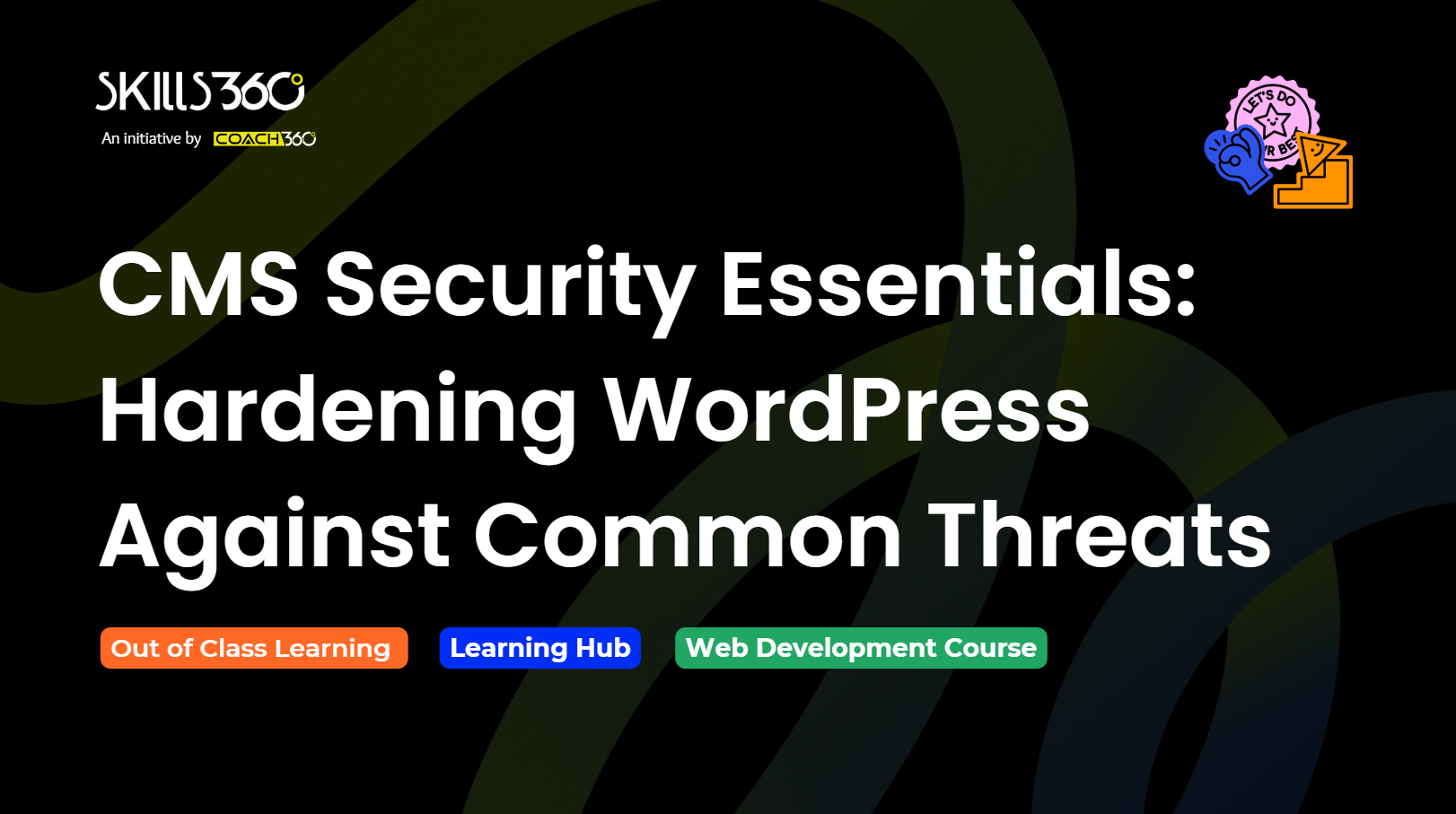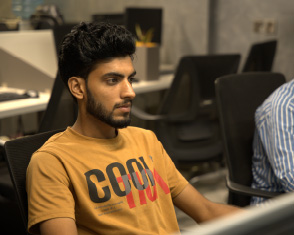- Featured article
- People at Skills360 28 - Aug 2025 | 12 min read

WordPress is the most popular content management system (CMS) used today, powering everything from personal blogs to business websites of all sizes. It's flexibility and strong community of developers with an immense library of plugins has fostered its popularity among developers and organizations alike.
Unfortunately, with its popularity comes the risk of its widespread adoption being attractive to cybercriminals.If it is not secured properly, a WordPress website predisposes itself to be attacked from brute-force logins to malware injections.
These days, security should also not be an afterthought. You need only take to the news recently regarding the advancements in attacks related to cybercrime. Organizations are scrambling to find out how and where their current security posture lacks. At Skills360, we believe we can physically and cognitively empower people with tangible knowledge.
With this principle in mind, Skills360 provides secure WordPress website training in Karachi to equip learners with knowledge of the steps to take when it comes to CMS and security, while also giving them the methods to secure their website and online presence, properly.
Cybersecurity incidents are increasing worldwide, and WordPress sites are often caught in the fire for attackers. Hackers commonly take advantage of vulnerabilities exploited by outdated plugins, weak passwords, or inadequate settings on websites. These breaches can be impactful and detrimental to an organization:
For businesses, that means securing a WordPress site is not an option, but rather an essential part of their ongoing and long-term growth.
To fortify WordPress against attacks, it is important to first understand the most common vulnerabilities:
Understanding how these attacks work can allow you to build concrete defences to ensure your site remains secure.
Hardening a WordPress site is a combined effort of multi-layered defense. Below are some of the best ways to help secure your WordPress site:
Use complex, unique passwords and implement two-factor authentication (2FA) for all users. It is also worth considering limiting the number of login attempts to help mitigate brute force attacks.
Using outdated core files, themes or plug-ins is one of the most significant vulnerabilities. It is important to ensure that you switch to the latest stable version as often as possible in order to patch known vulnerabilities.
The tools to track traffic, scan for malware, and identify/block malicious activity towards the website are things like Wordfence or Sucuri. The point is to check for known vulnerabilities before they impact the site.
Make sure you assign roles correctly. In other words; there is no real need for every contributor to have administrator access. By limiting permissions, you lessen the potential for mishaps or deliberate misuse of their access.
Even with your website secured as best you can, it is still possible for someone to breach your defenses. It is important to have your website regularly backed up, so that you can fully restore it should the worst happen.
Reliable hosting companies sporting some level of a truncated firewall should provide some security, as should malware scanning and SSL certificates.
Human error is one of the top factors in WordPress security, with some plugins and hosting providers being important, but a large number of breaches happen because users simply do not know the basics of hardening their websites.
This is where training really comes in to assist. Skills360 is offering secure WordPress website training in Karachi to assist individuals, entrepreneurs, and organisations:
By investing in learning, they are not only protecting their own properties, but adding value to businesses that want a secure digital solution.
Secure website management is not a one-person job – it is an ongoing process. As malware gets more sophisticated, we need to become more sophisticated in defending against it. Securing a website and all the associated aspects of it is more than simply technical; business owners must foster a culture of security within their teams by doing things like:
By a business making security a day to day task, they are creating an environment to be relied upon by their customers.
Encrypting a WordPress site goes past keeping the hackers away; it involves keeping your brand, customers and future safe. Threats are getting smarter every day, and individuals and businesses need to proactively harden their CMS platforms.
At Skills360, we are empowering learners to do just that. Our secure WordPress website training in Karachi guarantees you do not build a website; it allows you to build a fortress.
If you want to protect your digital assets and be in a solid position to manage any developing threats, investing in your knowledge and security practices now is imperative.


Get curated emails on out of class learning and work on your skills on your free time.